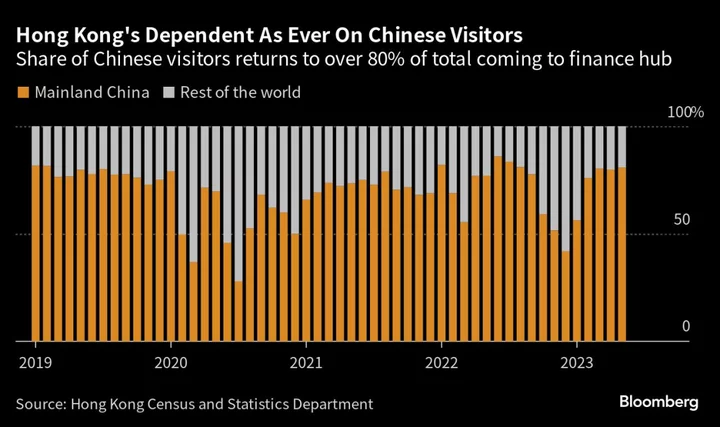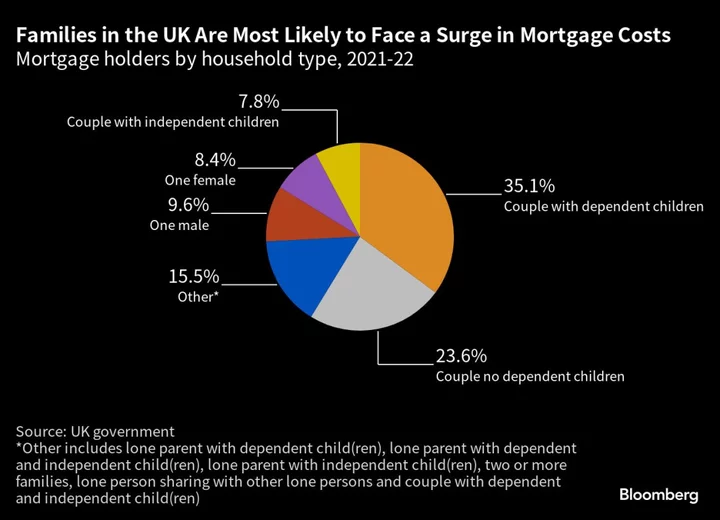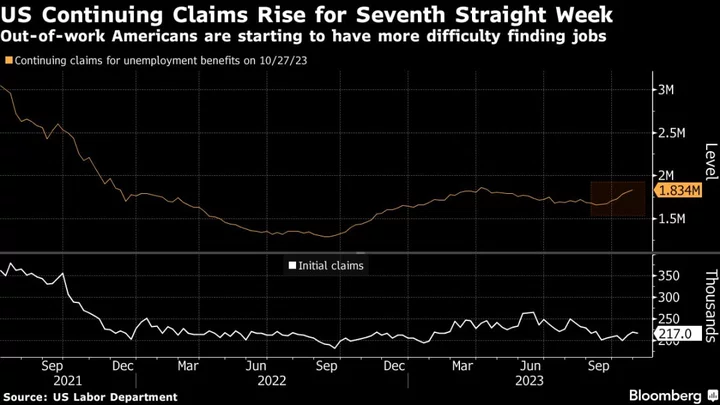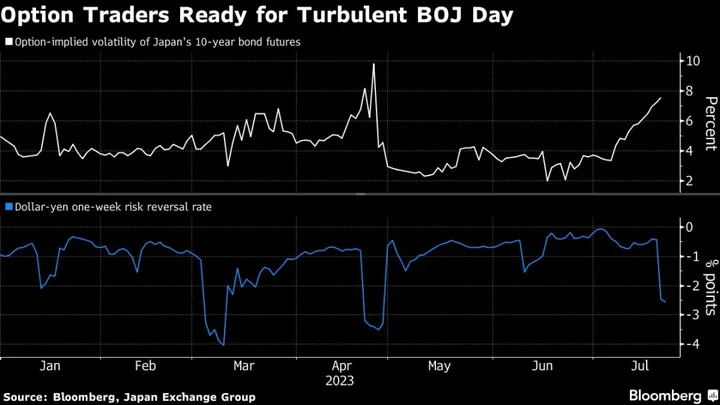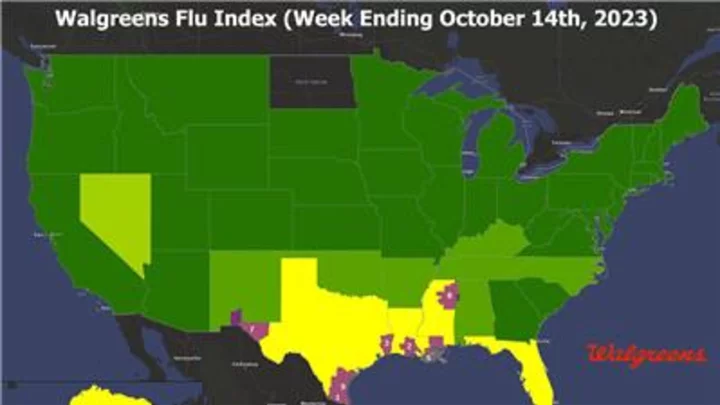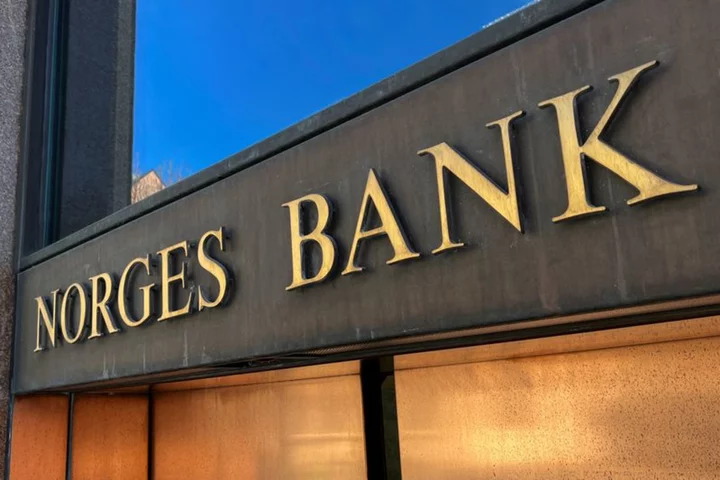Hong Kong has struggled to regain its appeal as a global retail paradise since the city reopened this year, underscoring the damage caused by years of isolation to its $360 billion economy.
Tourists aren’t coming in the same numbers as they did before protests in 2019 and pandemic restrictions in the following years made Hong Kong a no-go zone. Visitor arrivals in June were 42% below the same month in 2018. The result is weak consumer spending. The value of retail sales that month were the lowest for any June since 2011, after stripping out 2019-2022 figures.
The picture is a markedly different one from last decade, when ever-rising numbers of mainland tourists crowded the city’s streets and clamored for luxury goods. In 2018, visitor arrivals totaled 65 million, up 11% from the previous year, putting Hong Kong among the most popular tourist destinations globally. That year the city held the crown for having the world’s most expensive retail district as international brands competed to get a slice of that spending, a title it’s since lost.
Hong Kong’s fading allure as a shopping hub is one of a number of challenges the former British colony faces as it seeks to resuscitate the economy and global image. Its historically vibrant finance sector is shedding jobs amid a dearth of deals, while office rental prices have plunged after some businesses shifted to Singapore. US sanctions means leader John Lee is unable to travel to many countries in the West, hobbling his ability to bolster ties in the wake of the controversial national security law.
Even if mainland tourist numbers pick up more substantially, Chinese visitors are unlikely to spend in the same way as before. Tumbling home prices and rising youth unemployment have shattered consumer confidence, while the economic outlook appears bleak.
A rapidly depreciating yuan is also making Hong Kong more expensive. The local currency, which is pegged to the greenback, is trading near its strongest level versus the yuan since 2008.
Many mainland tourists now prefer local cafes and restaurants as opposed to shelling out for fine dining and luxury goods, according to Simon Wong, president of the Hong Kong Federation of Restaurants and Related Trades.
“On average, they spent around HK$500 ($64) a day on food before Covid,” Wong said. “Now they spend slightly more than half that amount.”
As an illustration of how Hong Kong’s fortunes have dimmed, local media reported that a shop space in the tourism district of Tsim Sha Tsui was recently leased for 70% less than Burberry Group Plc paid for it in 2014. The newest tenant is a Chinese jewelry brand.
“People are looking for experience beyond shopping only, which is probably the old model that Hong Kong had,” said Gary Ng, senior economist at Natixis.
Weak spending by visitors is likely to weigh on the local economy, which is showing signs of strain after rebounding in the first quarter of the year. The government this month lowered the top end of its growth target for 2023, saying tourism and consumer spending would be major drivers of expansion for the rest of the year.
“Unless tourists come back to pre-2019 levels, Hong Kong’s growth will slow down in the second half,” said Alicia Garcia-Herrero, a senior research fellow at Bruegel.
The government launched a series of campaigns this year to attract visitors and repair the city’s image, including a “Hello Hong Kong” tourism campaign, airline ticket giveaways and bringing film stars and influencers to Hong Kong. Financial Secretary Paul Chan said in a recent blog post the city needs to improve its competitiveness and ability to attract tourists, adding that the city will launch more events, such as night bazaars and exhibitions.
Aviation constraints may also be limiting travel. Hong Kong’s airport, previously the world’s third-busiest in terms of international passenger volume, is operating at 60% of capacity compared with pre-Covid levels, largely due to a shortage of workers. Hotels are also yet to return to levels of service seen before the pandemic.
“Transportation and logistics capacity is greatly affecting how many tourists can come and stay overnight in Hong Kong,” said Caspar Tsui, executive director of the Federation of Hong Kong Hotel Owners.
As tourism numbers remain low, Hong Kongers aren’t taking up the slack. Instead they’re choosing to travel into the mainland where goods and services are cheaper, helped by the slumping yuan. In June there were some 5 million trips by locals to mainland China, about 80% of the comparable period in 2018, according to data by the Census and Statistics Department.
“It is not worth shopping in Hong Kong,” said Crystal Chan, a 22-year-old university student who’s visited neighboring Shenzhen five times in the past three months.
Even the city’s world famous nightlife has been affected. Bars in the city’s commercial districts are taking in 70% of the monthly revenue they used to make before the pandemic, according to Chin Chun-wing, chairman of the Hong Kong Bar and Club Association.
Cliff Wong, an employee at a local university, said he used to go to bars with friends as many as four times a week. After many of his friends left the city due to pandemic controls and political tensions, Wong now meets up less than once a week on average.
--With assistance from Filipe Pacheco.
Author: Kari Lindberg, Ka Ho Cheuk and Danny Lee

